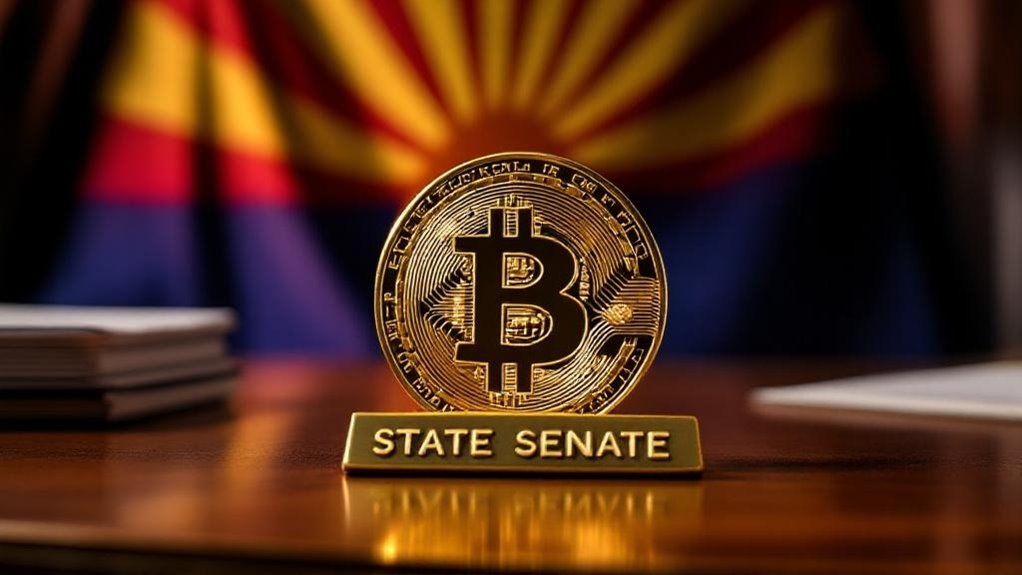MemeCoinCook.com serves up spicy crypto memes and info for entertainment only—this ain’t financial, investment, legal, or professional advice! Whipped up with AI flair, our content might have some half-baked bits, so DYOR before you dive into the crypto pot. NFA, folks—we’re just tossing out ideas, not guarantees. We make no claims about the accuracy, legality, or tastiness of our posts. Sip our content at your own risk! Check our Terms of Use for the full recipe.

Arizona Edges Toward Controversial Bitcoin Reserve Fund After Razor-Thin Senate Vote
The Arizona Senate just voted on something that sounds like science fiction but is very real. State lawmakers narrowly approved House Bill 2324 to create a Bitcoin reserve fund, passing it by just 16-14 votes. This razor-thin margin shows how divided politicians are about managing seized cryptocurrency.
The proposed fund would hold up to $300,000 worth of Bitcoin and possibly other digital assets seized during law enforcement operations. Under the bill’s provisions, 25% of seized digital assets exceeding $300,000 would be allocated to this Bitcoin and Digital Assets Reserve Fund. Think of it as a digital vault where the state would store confiscated crypto instead of letting it sit in limbo. The bill now returns to the Arizona House for more debate, but its journey has been anything but smooth.
Arizona first introduced this legislation earlier but faced rejection before senators gave it new life in 2025. Governor Katie Hobbs has already vetoed two Bitcoin bills this year, raising questions about whether this attempt will meet the same fate. The state is fundamentally trying to figure out what to do with all the unclaimed crypto piling up from criminal cases. It’s like finding a bunch of gift cards in evidence lockers and needing a system to manage them.
Critics aren’t buying it though. They worry about Bitcoin’s wild price swings potentially draining state funds faster than a phone battery running TikTok. Unlike stablecoins like USDT that maintain a dollar peg, Bitcoin’s volatility makes it a risky asset for government reserves. Security concerns also loom large since managing digital assets requires serious tech expertise. Some legislators question whether the state should even hodl seized assets when crypto markets can crash overnight.
The narrow vote reflects these deep concerns. Fourteen senators fundamentally said “no thanks” to becoming crypto custodians. They see too many risks in storing volatile digital assets that could lose value faster than last year’s memes.
If approved, Arizona would become one of the first states with formal crypto asset management at this scale. The move could inspire other states to create similar frameworks or serve as a cautionary tale if things go south. Either way, Arizona is pushing into uncharted territory where traditional government meets digital finance.
The bill represents a broader shift in how governments view cryptocurrency. What started as internet money for tech enthusiasts now demands serious legislative attention. Whether Arizona’s experiment succeeds or fails could shape how America handles digital assets for years to come.



